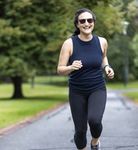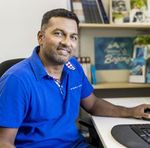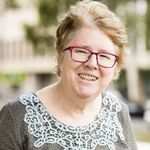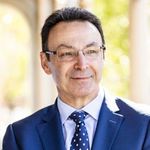Tinnitus: Detecting an invisible condition - AUTUMN 2022 - Bionics Institute
←
→
Page content transcription
If your browser does not render page correctly, please read the page content below
Bionics Institute Newsletter
AUTUMN 2022
Tinnitus:
Detecting an
invisible condition
Data science
and medical
devices
Join our
upcoming
eventsA word from our CEO
Innovation – the drive to uncover new ways of One element of this support is the Bionics Incubator Fund,
doing things - lies at the heart of the Bionics which provides seed funding to researchers who pitch a
great idea.
Institute.
One fabulous idea is the adaption of our vagus nerve
Our talented researchers and engineers are hard-wired stimulation device to treat rheumatoid arthritis, which is
to find new ways to diagnose and treat the world’s progressing well towards clinical trials.
most challenging medical conditions. Bionics Institute
achievements are derived from their innovation. Your support for early-stage research at the Bionics
Institute is vital to translate amazing ideas like these into
This includes, among many others, a novel system to new diagnostic tools and life-changing treatments.
enhance deep brain stimulation for Parkinson’s disease; a
vagus nerve stimulation device to reduce inflammation in
Crohn’s disease; new techniques to diagnose previously
undiagnosed deafness in infants; and novel therapies to
give back hearing in those who have lost it due to age
“ We hope you will continue to
support Innovation for Life at the
”
and/or noise exposure.
Bionics Institute.
In this newsletter, we hear from Dr Mehrnaz Shoushtarian
who has developed a new way to use near-infrared
spectroscopy to provide a much-needed objective
measure of tinnitus.
We also take a deep dive with our data analytics lead
Dr Gautam Balasubramanian, who is developing new
machine learning and signal processing algorithms for
software used in devices, such as the EarGenieTM infant
hearing diagnostic tool.
In a recent survey, 87% of our staff said they rate
the Bionics Institute as exceptional in its support for Mr Robert Klupacs
innovation. CEO
Leadership and impact Exceptional contribution to health
and medical science
In December, we welcomed Professor Field Rickards
to our end of year celebration. He presented the Bionics Institute’s Professor Colette McKay has been
inaugural Field Rickards Annual Awards for Leadership elected by her peers as a Fellow of the Australian
and Impact at the Bionics Institute. Academy of Health and Medical Sciences.
Awards were presented to: Dr Sophie Payne for Best Professor McKay leads translational hearing research at
Researcher 2021; Elise Ajay for Best Student 2021; the Bionics Institute. She is an internationally recognised
and our pre-clinical research group for Best Research and distinguished auditory science researcher, lauded
Team 2021. for her research into improving speech understanding in
cochlear implant users.
Professor Rickards started his career as a PhD
student with Professor Graeme Clark in the Bionic Ear More recently, she has led research into a new hearing
program, and was a member of the Institute’s Board test for babies called EarGenie™, which uses a brain
of Directors between 1998 and 2020. He has made a imaging method to see how a baby’s brain responds to
substantial contribution sounds.
to hearing research
during his career and Professor McKay said: ‘I am
we were delighted to honoured indeed to be elected
offer the awards in to such a prestigious academy,
recognition of his long and it is a great satisfaction for
service to the Bionics me to be able to succeed in
Institute. improving the lives of people
with hearing impairment, even
in the smallest way.’Tinnitus: detecting an invisible condition
Tinnitus is the experience of sounds in one or both ears that Mehrnaz and her team have developed a method of using
originate in the brain and can’t be heard by others – making it an an existing brain imaging technique called functional near-
invisible condition. Despite it being unseen, its effect on people’s infrared spectroscopy, to record and show differences in
lives is very much tangible and can be debilitating. Tinnitus can brain activity between people with and without tinnitus, as
affect people’s ability to work or cope with everyday life. well as individuals experiencing tinnitus at different severity
levels. This will be used to develop a definitive test of the
Conducting research into an invisible condition like this presence and severity of tinnitus to aid diagnosis.
is difficult and takes a great deal of creativity.
Mehrnaz says: ‘I became interested in medical research as
Bionics Institute researcher Dr Mehrnaz Shoushtarian is I wanted to apply learnings from my engineering degree to
undertaking this difficult task by drawing on her background in address health issues and improve patients’ lives.’
biomedical engineering to develop an objective test for tinnitus.
The test will be the first step towards accurately diagnosing the ‘My future goal is to see our work
condition so that future treatments can be developed. on objective measurement of
tinnitus improve treatments for
She explains: ‘My research career has focused on using this debilitating condition and be
different techniques to record physiological signals accessible to all patients.’
and brain activity. We can use these recordings to gain
information on how the brain works or why it’s not Find out more about this research
working in a certain situation.’ in our Recent Events section below.
We look forward to seeing you at one of our upcoming free events. You can register
Upcoming Events by clicking on the link or opening the page on your phone using the QR code.
Bionics Institute 2022 Bionics Institute 2022
Graeme Clark Oration Innovation lecture
Engineering your heart’s health Building Australia from Innovation
The Bionics Institute 2022 Graeme Clark Oration Join us at our inaugural Innovation Lecture event
is back! to hear from leaders in medical technology about
building Australia from innovation.
When: 6pm | Tuesday 12 July 2022
Where: Melbourne Convention and Exhibition Centre When: 6pm | Thursday 8 September 2022
Orator: Dr Natalia Trayanova, the Murray B. Sachs Where: Melbourne Museum
Professor of Biomedical Engineering at the Johns Keynote speaker: Andrew Nash, Chief Scientific
Hopkins University (USA). Officer, CSL
Join us at Australia’s premier free public science Following the lecture refreshments will be served,
event to learn how cardiac arrest can providing the opportunity to meet our
be predicted in advance and innovative researchers and
treatments tailored to individuals. fellow guests.
Register to attend Register to attend
Please note: events will adhere to Victorian Government coronavirus restrictions and guidelines.
If you missed any of our recent events, you can view a recording by clicking on the link or
Recent Events opening the page on your phone using the QR code.
Rethinking The Australian Bionic Eye: the Tinnitus: detecting an
rheumatoid arthritis people behind the technology invisible condition
Hear how a new nerve treatment Hear how Bionics Institute researchers Hear how Bionics Institute
invented by Melbourne researchers are working with an interdisciplinary researchers have developed a
at the Bionics Institute is bringing team in Melbourne that is leading the new way of measuring tinnitus by
hope to people with way in the global challenge recording brain activity, and how this
rheumatoid arthritis. to restore functional could help people with
vision for the blind. tinnitus in the future.
View event View event View eventBionics takes on Bogong! Donation Form
I would like to make a monthly* gift of:
On the 4 December 2021, 36 Bionics Institute staff, family
and friends got together to hike 1,986m to the top of
$50 $100 $250 $500
Mt Bogong, raising over $10,000 towards life-changing
medical device research.
Victoria’s highest peak was a challenge via the Staircase
Spur but the group was rewarded with amazing views and
My choice $ _____________
great memories! *Your gift will be deducted on the 20th of each month and
will continue unless you notify us to stop it.
I would like to make a single gift of:
$ 50 $ 100 $250 $ 500 $ 1000
My choice $ _____________
My Details
Going the extra mile!
Name
Inspired by taking part in the Bionics takes on Bogong Street address
event and seeing first-hand the difference community
funding can make, Bionics Institute’s Mica Haneman will Suburb
be taking part in a triathlon later this year to raise money
State Postcode
towards our cochlear implant research.
Email
Mica, an audiology graduate and research assistant with
the Bionics Institute’s hearing team explains: ‘I have the Mobile
privilege of working with cochlear implant recipients to
investigate ways of improving how cochlear implants are
My Donation Details
programmed. Some people with a cochlear implant still
experience many challenges with how sounds and speech Please debit my Visa MasterCard AMEX
are heard. The work the
Bionics Institute teams are Card no.
doing to try and resolve this
is so important. Expiry date M M Y Y
‘I’m always looking for Cardholder name
a new challenge, so I’m
really excited to be working Signature
towards a new goal, whilst
All donations of $2 or more are tax deductible. The Bionics Institute is
also raising money towards compliant with Australian Privacy Principles and our Privacy Policy can be
such a worthwhile cause’. viewed at: www.bionicsinstitute.org/privacy-statement
I have made a bank transfer to NAB
BSB: 083-170 Account: 54-537-7254
We’d love to hear your Enclosed is my cheque made payable to the
fundraising ideas! Bionics Institute of Australia
I would like to receive information about
If you’re thinking about setting up a fundraiser
for Bionics Institute research, or have any
making a gift in my Will
questions about how you can do this,
please contact Lucy Hooper at: You are welcome to call and give us your credit card
details over the phone: 03 9667 7500,
philanthropy@bionicsinstitute.org or donate online at www.bionicsinstitute.org
Thank you for supporting the Bionics Institute
384—388 Albert Street, East Melbourne VIC 3002
Email: philanthropy@bionicsinstitute.orgPhilanthropy Update In the News
I hope that you were able to join us for our Here’s a roundup of our news stories
tinnitus webinar during this year’s Hearing over the past six months.
Awareness Week, when we discussed the
difficulties faced by people living with this
debilitating condition. Inspiring women to
pursue careers in STEM
Led by Dr Mehrnaz Shoushtarian, our researchers are In 2021, leading female
developing a new objective test for tinnitus, which could researchers at the Bionics
pave the way for determining the severity of the disease Institute mentored eight students
from Ivanhoe Girls Grammar on
and developing new potential treatments. To accelerate
a six-month program designed
this innovative research and to move the test into the to inspire young women to
clinic, we need your support. pursue careers in STEM.
Philanthropic support enables us to secure and establish
our research through to clinical stage. We can then attract
additional sources of funding and commercialise our
products. Ensuring our pioneering research reaches the New drug treatment
clinic and enables us to transform the lives of patients far hope for hearing loss
into the future. A breakthrough using
nanotechnology is allowing
I would like to introduce the rest of our philanthropy team; Bionics Institute researchers
to explore a world-first drug
Melissa McShane, who has joined us as Development
treatment for hearing loss.
Manager, working with our major donors, and Lucy
Hooper, our External Relations Coordinator, with a focus
on community fundraising.
We are looking forward to getting to know our supporters Prestigious scholarship
better and you will be hearing from us over the next awarded for tinnitus
couple of months, as we aim to find out more about your research
specific areas of interest at the Bionics Institute. We look Research assistant, Shreyasi
forward to updating you on the great progress we are Datta has been awarded the
making with our different areas of research. Len Stevens Scholarship by
the University of Melbourne
“ We are most grateful for your
continued support; every gift, no
to further Bionics Institute’s
tinnitus research.
matter how large or small, is put
to effective use and makes a real Developing the
researchers of tomorrow
difference to our work. Thank you.
” Jessica Gonzalez has completed
a student placement at the
Bionics Institute as part of the
Amgen Scholars Program, an
initiative with links to Harvard.
Read more about
these stories and
latest news here
Ann Fazakerley
Head of Philanthropy Read moreWhy is data science needed to develop medical devices?
Data science is playing an increasingly The band contains small light sources and detectors
important role in fostering innovation within which are used to make these measurements.
medical research. The light signal from the brain is processed by the
specialised EarGenieTM software and its data analysis
This is because many medical treatments and diagnostic algorithm automatically interprets the results.
tools are being developed using a combination of
technology and computer systems. Using the algorithm EarGenieTM can indicate whether
or not the baby has heard the sound, and also whether
One example of this is the EarGenieTM infant hearing the baby can tell the difference between two different
diagnostic tool, currently under development at the sounds, known as discrimination.
Bionics Institute.
Eventually this technology will allow audiologists to tune
EarGenieTM uses a band wrapped around the baby’s hearing devices accurately from the very start, allowing babies
head to measure changes in brain oxygen level that to hear vital sounds and give them the best start in life.
occur when sound is heard and processed.
Future-proofing the Bionics Institute
Combining medical device Gautam also plays a key role in helping the Institute prepare for
research and data science the future.
Bionics Institute’s Senior Data Scientist Gautam By using the latest data science practices learned from his previous
Balasubramanian joined the Institute in May 2021. roles in the high-tech telecommunications, defence and finance
sectors, he is aiming to find common transferable techniques, as
His primary role is to develop machine learning and signal well as uniform ways of developing and running analytics projects.
processing algorithms for Bionics Institute research teams.
He hopes these could be used to solve problems across
For EarGenie, he is developing detection algorithms for various research areas, fostering greater collaboration between
the software system, which provides clinicians with an teams and enabling faster progression of scientific research, to
assessment of the baby’s hearing. That work can then be speed up treatments from the lab to the bedside.
extended and adapted to apply to other projects.
Describing his journey from business to the Bionics Institute,
By applying robust, sophisticated & cutting edge analytics he says that medical research is an area where he can be
techniques, we can efficiently analyse and extract creative and exercise all aspects of his personality.
meaningful outputs from the huge amounts of data
collected by our researchers. He enjoys looking at existing projects and bringing in cutting-
edge knowledge from computer science to help advance
‘By developing a similar genre of statistical models we treatment options available.
can gradually improve algorithms across many projects.
For example, we can apply similar techniques from He says: ‘I always had a keen interest in health sciences, and even
EarGenie to other projects which capture changes in though I may not be a medical professional, I always thought there
brain activity.’ must be a way I can use my skillset
to work on something that can
One of these projects includes tinnitus. Bionics Institute ultimately help people.
researchers are using the same technology as EarGenie
to look at how the brain responds to sounds, to develop ‘It’s very fulfilling to work
an objective test for tinnitus. somewhere that focuses on taking
new ideas and bringing expertise
The new test will aid the diagnosis and development of together, to translate them into
potential treatments. something effective and useful
that will have a positive impact on
someone’s life,’ he concludes.
The Current is published by the Bionics Institute
For the Bionics Institute’s latest research news, visit www.bionicsinstitute.org
If you would like to receive our email updates or have any queries, please contact us:
supporterupdates@bionicsinstitute.org +61 (3) 9667 7500
384-388 Albert Street, East Melbourne, VIC 3002You can also read



























































